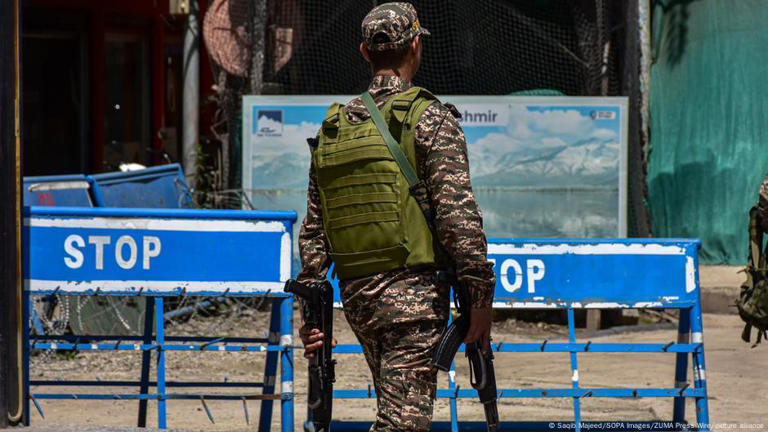Kashmir crisis sparks press crackdown in India
The recent escalation of tensions between India and Pakistan over the Kashmir conflict has been accompanied by a significant crackdown on press freedom in India, particularly in the Jammu and Kashmir region. This development has raised concerns among international human rights organizations and press freedom advocates.
Journalists Targeted Under Anti-Terror Laws
Several journalists in Kashmir have been arrested under stringent laws such as the Unlawful Activities (Prevention) Act (UAPA) and the Public Safety Act (PSA), often without formal charges or trials.(Wikipedia)
- Irfan Mehraj: A journalist and researcher associated with the Jammu Kashmir Coalition of Civil Society (JKCCS), Mehraj was arrested in March 2023 by the National Investigation Agency (NIA) on allegations of involvement in “terror funding.” His arrest has been widely criticized by international human rights organizations, including Amnesty International and the United Nations Special Rapporteur on Human Rights Defenders, who have called for his immediate release. (Wikipedia)
- Asif Sultan: An award-winning journalist known for his reporting on civil unrest in Kashmir, Sultan was arrested in August 2018 under the UAPA for allegedly supporting militant activities. Despite being granted bail in April 2022, he was re-arrested under the PSA and remained in detention until May 2024. His prolonged detention has been condemned by international press freedom organizations. (Wikipedia)
Banning of Political and Religious Organizations
In March 2025, the Indian Ministry of Home Affairs declared the Jammu & Kashmir Ittihadul Muslimeen (JKIM) and the Awami Action Committee as “unlawful associations” under the UAPA. The government accused these organizations of inciting unrest and supporting secessionist activities, leading to their immediate ban for a period of five years. (Wikipedia)
Use of the Public Safety Act (PSA)
The PSA, a law that allows for administrative detention without trial for up to two years, continues to be used extensively in Jammu and Kashmir. Critics argue that the PSA is employed to suppress dissent and silence journalists and activists. The Supreme Court of India has previously expressed concerns about the misuse of the PSA, highlighting its potential to undermine democratic principles. (Wikipedia)
International and Domestic Reactions
The crackdown on press freedom in Kashmir has drawn criticism from various quarters:
- International Human Rights Organizations: Groups like Amnesty International and the Committee to Protect Journalists have condemned the arrests of journalists and the suppression of free speech in Kashmir.
- United Nations: UN experts have raised concerns over the legitimacy of the arrests and the broader implications for human rights in the region.(Wikipedia)
- Domestic Political Leaders: Mehbooba Mufti, former Chief Minister of Jammu and Kashmir, criticized the arrests, stating that journalists are being targeted for simply doing their jobs.
Conclusion
The ongoing conflict in Kashmir has not only escalated military tensions between India and Pakistan but has also led to a significant erosion of press freedom in the region. The use of stringent laws to detain journalists and ban organizations raises serious concerns about the state of democracy and human rights in Jammu and Kashmir. International and domestic voices continue to call for the protection of press freedom and the release of those unjustly detained.
